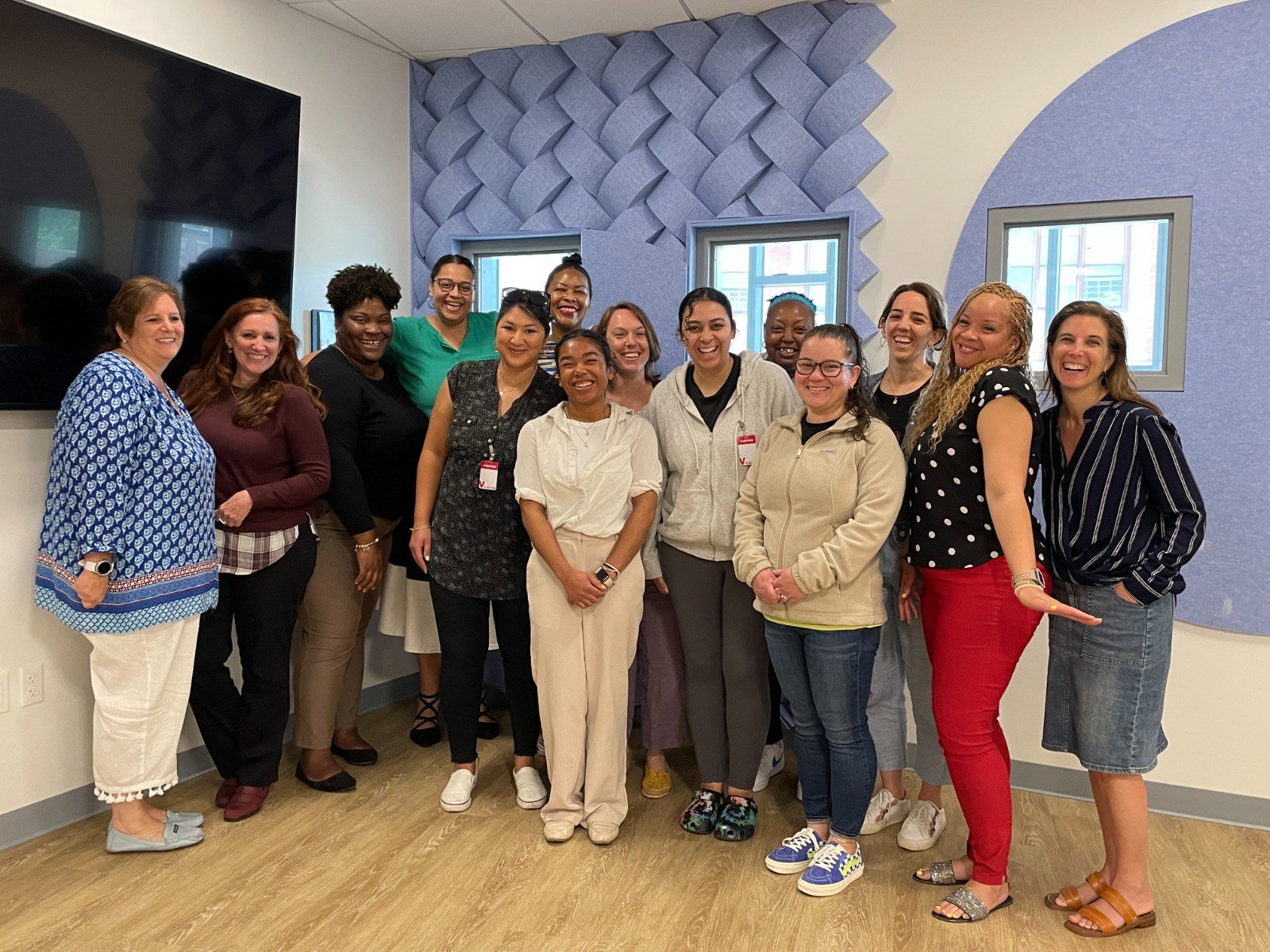A co-created community resource: Elevating educator voices
"How do we create a curriculum that authentically serves the audience it is created for and where do we start?"
That was the question and puzzle that Neighborhood Villages sought to solve when creating an innovative, play-centered curriculum for toddlers. As educators, we have experienced curricular resources as often expensive, inaccessible, and not developmentally appropriate particularly for toddlers. We dove into the work of curriculum development with an intention and commitment to an equity centered product that was deeply connected to the lived experiences of the little learners we intend to serve. This was what inspired us to begin our process, to create a developmentally appropriate resource, rooted in the principles of anti-bias education, co-created with the true experts on toddlers and their development - their teachers and caregivers.
At Neighborhood Villages, we are committed to addressing inequity in the early childhood education and care space from every angle. Early childhood educators are majority BIPOC women whose voices have been historically marginalized and underrepresented in education leadership. Research shows that as a result, teachers often suffer from feelings of disempowerment, believe their knowledge and expertise are not valued by society, and report poor mental health (1). One powerful way to remedy this is to start listening to and elevating teachers’ voices, giving them the power to decide what happens in their classrooms.
Our work began in the powerful incubator we call the Neighborhood. Teachers, directors, and parent representatives from Epiphany Early Learning Center, East Boston Social Centers, Ellis Early Learning, Nurtury Early Education, and Horizons for Homeless Children comprised our first group of consultants. Our second group of consultants included experts in early childhood education, including professors, researchers, infant and toddler educators, and child psychologists. These two groups met biweekly to discuss, debate, write, review, and iterate what eventually became our Toddler curriculum. The wealth of lived experience, expertise on child development, and strategies for family engagement set apart our curriculum piloted across twenty-six classrooms while we wrote and reviewed it. The ability to see our ideas in action while drawing on the incredible intellectual resources of our curriculum consultants allowed us to be truly immersed in the process of co-creation.
The perspectives we gained as a result allowed us to ensure that the children’s literature we selected was representative of the children and families in Boston. It allowed us to prioritize selecting books written and illustrated by a diverse population. The process ensured that we were approaching family engagement intentionally and thoughtfully and brought a trauma-informed lens to all our work, with sociocultural considerations specific to the children in our care. Finally, and perhaps most importantly, educators engaged in this process reported feelings of pride, empowerment and joy - feelings they deserve to feel consistently.
As we look to our original guiding question of how to authentically create a curriculum that is designed for and best serves toddlers in our context, we know that the answer lies not in the product itself, but in the process of its creation. We are excited and proud to have developed this curriculum not for educators, but alongside them, with genuine appreciation for the value and expertise that they bring to the table.
(1): Otten, J. J., Bradford, V. A., Stover, B., Hill, H. D., Osborne, C., Getts, K., & Seixas, N. (2019). The culture of health in early care and education: workers’ wages, health, and job characteristics. Health affairs, 38(5), 709-720.

